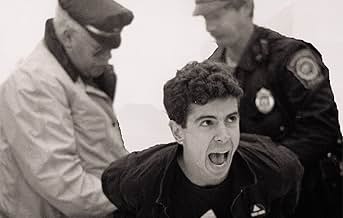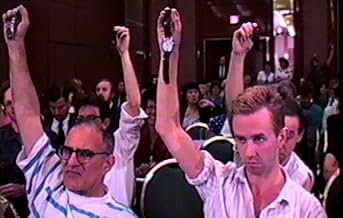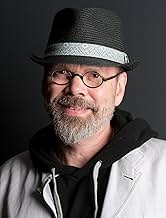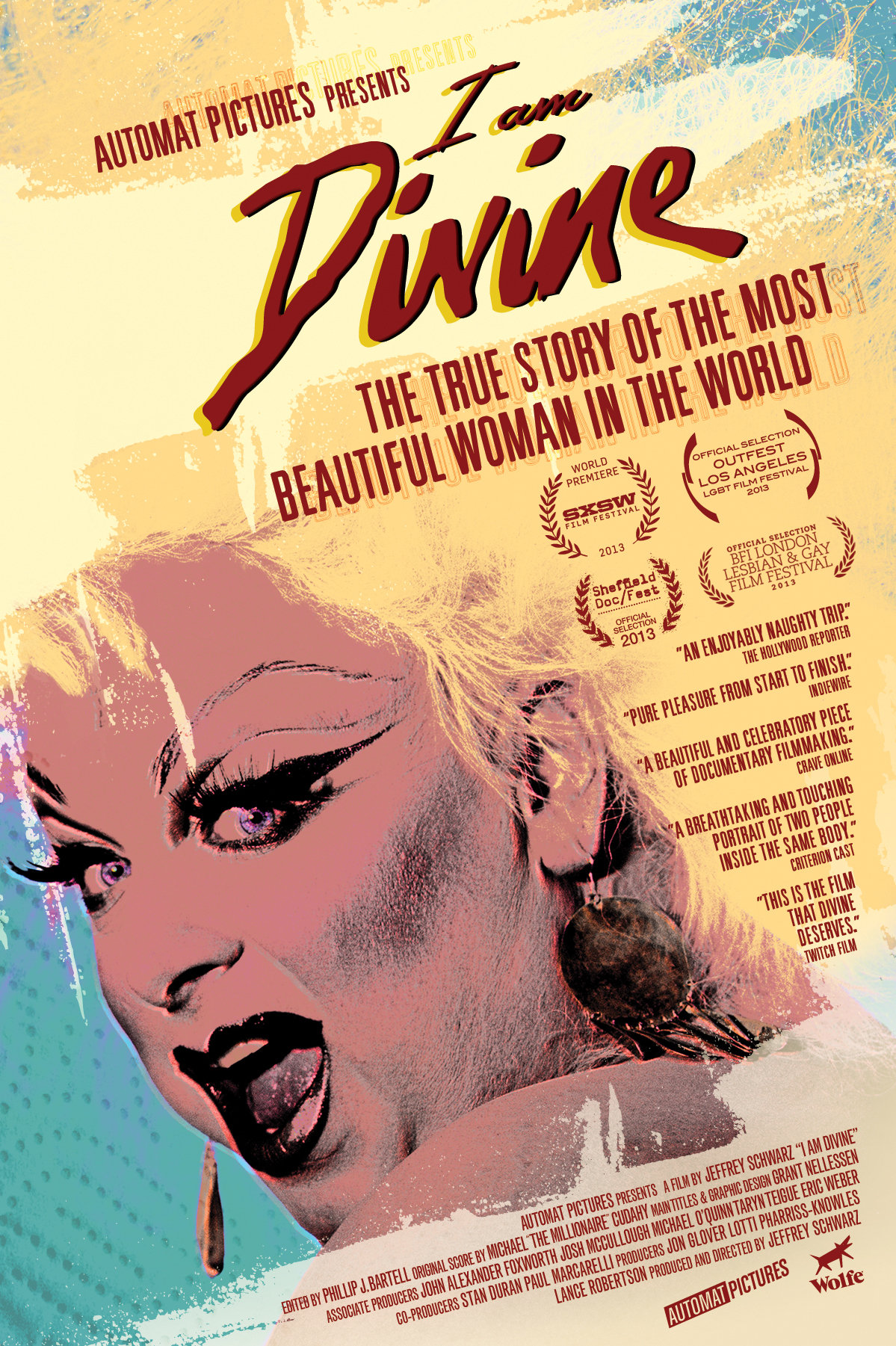AVALIAÇÃO DA IMDb
7,6/10
4,5 mil
SUA AVALIAÇÃO
Adicionar um enredo no seu idiomaThe story of two coalitions -- ACT UP and TAG (Treatment Action Group) -- whose activism and innovation turned AIDS from a death sentence into a manageable condition.The story of two coalitions -- ACT UP and TAG (Treatment Action Group) -- whose activism and innovation turned AIDS from a death sentence into a manageable condition.The story of two coalitions -- ACT UP and TAG (Treatment Action Group) -- whose activism and innovation turned AIDS from a death sentence into a manageable condition.
- Direção
- Roteiristas
- Artistas
- Indicado a 1 Oscar
- 13 vitórias e 21 indicações no total
Iris Long
- Self - Retired Chemist
- (cenas de arquivo)
- (as Iris Long PHD)
Bob Rafsky
- Self - PR Executive
- (cenas de arquivo)
Ed Koch
- Self - Mayor of New York
- (cenas de arquivo)
Barbara Starrett
- Self - AIDS Physician
- (as Dr. Barbara Starrett)
Franke-Ruta Garance
- Self - Teenager
- (as Garance Franke-Ruta)
Mathilde Krim
- Self - AMFAR, The Foundation for AIDS Research
- (as Mathilde Krim PHD)
Jesse Helms
- Self - R - North Carolina
- (cenas de arquivo)
Avaliações em destaque
"How to Survive a Plague" takes real footage from the 1980s and 90s fight for health among the homosexual community and allows us to accurately re-live the tragedy of the rise of AIDS worldwide and the political incompetence to do anything about it. Part of the excellence of this documentary is allowing the actual events to speak for themselves. These activists had the foresight to record their conversations and protests, and these filmmakers had to foresight to know how to edit it to leave the power in the hands of those fighting.
AIDS Coalition to Unleash Power (ACT UP) was formed in New York in 1987. Establishing Larry Kramer as its spokesperson was one of the many smart moves this advocacy group made. He's well-spoken and he knows his facts. Approximately half-way through the film, Larry stands up and delivers a speech so Earth-shatteringly accurate, simple and poignant that the entire audience in the room and the entire audience for the film are left speechless.
There are times during this fight where the group dissipates and internal disagreements arise, and even though a separate group formed, this community stuck together and the emergence of TAG (Treatment Action Group) just doubled their efforts and accomplishments. AIDS patient and homosexual activist Peter Staley was one of the heroes of the film and is likely a personal hero to many. At the beginning, he was young, passionate and out-spoken but he knew his facts and could beat any politician in a debate. Just because he was gay, dying of AIDS and inexperienced doesn't mean he doesn't know what needs to get done and doesn't mean he doesn't know how to do it. Although these struggles took place 20 years ago, it's still inspiring.
They fought against the Catholic Church and judging by the look on the Bishop's face, they won. They fought against the FDA, and won. They fought against the NIH, and didn't really win. They fought against President George H.W. Bush, and the result was basically pounding their head against a brick wall, but at least they made out on his golf course lawn. They fought against President Bill Clinton, and at least they learned their lesson about debating a Rhodes Scholar. More importantly, they learned that it doesn't have to be a fight, and all advocacy, political and governmental groups worked in harmony. But by this time, it was indeed a plague and survival was the only option.
The film had some fascinating facts but unfortunately they were written with a flickering green font on a grey cityscape background and were barely legible. But listen to what they have to say, and ACT UP and TAG will teach you "How to Survive a Plague".
AIDS Coalition to Unleash Power (ACT UP) was formed in New York in 1987. Establishing Larry Kramer as its spokesperson was one of the many smart moves this advocacy group made. He's well-spoken and he knows his facts. Approximately half-way through the film, Larry stands up and delivers a speech so Earth-shatteringly accurate, simple and poignant that the entire audience in the room and the entire audience for the film are left speechless.
There are times during this fight where the group dissipates and internal disagreements arise, and even though a separate group formed, this community stuck together and the emergence of TAG (Treatment Action Group) just doubled their efforts and accomplishments. AIDS patient and homosexual activist Peter Staley was one of the heroes of the film and is likely a personal hero to many. At the beginning, he was young, passionate and out-spoken but he knew his facts and could beat any politician in a debate. Just because he was gay, dying of AIDS and inexperienced doesn't mean he doesn't know what needs to get done and doesn't mean he doesn't know how to do it. Although these struggles took place 20 years ago, it's still inspiring.
They fought against the Catholic Church and judging by the look on the Bishop's face, they won. They fought against the FDA, and won. They fought against the NIH, and didn't really win. They fought against President George H.W. Bush, and the result was basically pounding their head against a brick wall, but at least they made out on his golf course lawn. They fought against President Bill Clinton, and at least they learned their lesson about debating a Rhodes Scholar. More importantly, they learned that it doesn't have to be a fight, and all advocacy, political and governmental groups worked in harmony. But by this time, it was indeed a plague and survival was the only option.
The film had some fascinating facts but unfortunately they were written with a flickering green font on a grey cityscape background and were barely legible. But listen to what they have to say, and ACT UP and TAG will teach you "How to Survive a Plague".
By using (mostly) never before seen archival footage, David France's unflinching documentary "How to Survive a Plague" DOCUMENTS the early epidemic of the AIDS virus in the United States, during a time when it was seen as a death sentence.
With a mixture of video from protests, support rallies and home movies, France portrays actual struggling AIDS victims/activists as their friends and family members begin to go blind and die around them, and the US government does little in way of assistance. France also does a great job of not only showcasing the overwhelming amount of discrimination during the 80's and 90's, which altogether ostracized anybody with AIDS or people that had any linkage to the gay communities, but succeeds in his attempts to dissect the human condition, by showing how far a determined group of people are willing to go for change.
The rest of the footage, which shows government officials such as former Senator Jesse Helms, former President Ronald Regan and former President George Bush Sr. is maybe the most shocking aspect of this film; as they come off as negligent and at times so blatantly prejudiced, that it's disturbing to think how everything depicted here took place only between 20 and 30 years ago.
Beginning in New York with the denial of the AIDS epidemic by former New York Mayor Ed Kotch, to the introduction of the highly toxic drug AZT (the most expensive drug on the market at the time, and the only one used to prolong the life of AIDS patients) to the Roman Catholic Church condemning the use of condoms, and ending with the evolution of ACT UP and TAG (Treatment Action Group) a group of activists (most of whom had the AIDS virus themselves) who revolutionized the way AIDS was treated, turning it into a manageable condition; the importance of this film lies in its documentation of a disenfranchised people during a time in American history that isn't broached in the classroom. But equally as interesting as the subject matter, is how creatively this documentary is put together. This archival footage format is truly an ingenious way to tell a narrative, really working on an almost purely visceral level to capture the times and atmosphere of a real life American revolution, in a way not many documentaries have the ability to do.
Final Thought: "How to Survive A Plague" is not only an informative, fascinating, and sure to be award winning film, but also one of the most powerful documentaries of 2012. There's not much more I can say about this documentary, other than that actually sitting down and witnessing what this film has to say, for yourself will undoubtedly create a deeper impact and elicit more of an emotional response than any mere words can say.
Written by Markus Robinson, Edited by Nicole I. Ashland
Follow me on Twitter @moviesmarkus
With a mixture of video from protests, support rallies and home movies, France portrays actual struggling AIDS victims/activists as their friends and family members begin to go blind and die around them, and the US government does little in way of assistance. France also does a great job of not only showcasing the overwhelming amount of discrimination during the 80's and 90's, which altogether ostracized anybody with AIDS or people that had any linkage to the gay communities, but succeeds in his attempts to dissect the human condition, by showing how far a determined group of people are willing to go for change.
The rest of the footage, which shows government officials such as former Senator Jesse Helms, former President Ronald Regan and former President George Bush Sr. is maybe the most shocking aspect of this film; as they come off as negligent and at times so blatantly prejudiced, that it's disturbing to think how everything depicted here took place only between 20 and 30 years ago.
Beginning in New York with the denial of the AIDS epidemic by former New York Mayor Ed Kotch, to the introduction of the highly toxic drug AZT (the most expensive drug on the market at the time, and the only one used to prolong the life of AIDS patients) to the Roman Catholic Church condemning the use of condoms, and ending with the evolution of ACT UP and TAG (Treatment Action Group) a group of activists (most of whom had the AIDS virus themselves) who revolutionized the way AIDS was treated, turning it into a manageable condition; the importance of this film lies in its documentation of a disenfranchised people during a time in American history that isn't broached in the classroom. But equally as interesting as the subject matter, is how creatively this documentary is put together. This archival footage format is truly an ingenious way to tell a narrative, really working on an almost purely visceral level to capture the times and atmosphere of a real life American revolution, in a way not many documentaries have the ability to do.
Final Thought: "How to Survive A Plague" is not only an informative, fascinating, and sure to be award winning film, but also one of the most powerful documentaries of 2012. There's not much more I can say about this documentary, other than that actually sitting down and witnessing what this film has to say, for yourself will undoubtedly create a deeper impact and elicit more of an emotional response than any mere words can say.
Written by Markus Robinson, Edited by Nicole I. Ashland
Follow me on Twitter @moviesmarkus
Seeing this title I was expecting something of an apocalyptic, end-of- the-world zombie type film. In fact, this documentary was far truer, exploring a disease which has cost many lives. One might say I have an interest in LGBT causes and maybe this is why I decided to see this documentary, but AIDS is not exclusive to any community.
This documentary starts in the early 80's in New York where young men and women are dying of AIDS. There is no treatment and they are even refused in the hospitals. Each with their individual pain couldn't do much so they organized and created "ACT UP" whose main focus was to be an activist group, which through civil disobedience would bring attention, awareness, and most importantly a cure to AIDS. The documentary retraces some of their fights and quarrels mostly through archives but also with some more recent interviews. It covers some of the darkest hours before the discovery of the lucky combination that would prolong the lives of many, but would come too late to save those of many more.
I think the topic is one of the most important there is. It feels so distant but I can actually remember hearing about a treatment to AIDS back then. It meant very little to me at the time. I can't say that I really loved the way the documentary was going about things but I liked the substance very much. It is very scary to think back and imagine those people taking whatever medication that was on trial simply because at that point it couldn't have done more harm.
While I think activism is double-edged blade and can sometimes backfire, it seems that this very activism has saved many lives and the alerted politicians who at first refused to talk about how many lives AIDS had taken. There are some very emotional personal stories here, and if my rating was based solely on the people in this documentary, I'd give them all a 10 for their courage and perseverance through this tremendous pain.
I liked: The topic. Historically important.
I disliked: The shaky archive footage, the constant shouting and confrontations. It had only one sequence to explain the actual biological/chemical aspects, which I felt were important and deserved more screen time.
74/100 A little over 20 years ago, there were presidents who would go on television and say that AIDS has behavioral causes that should be looked at. This documentary could definitely teach them a thing or two.
This documentary starts in the early 80's in New York where young men and women are dying of AIDS. There is no treatment and they are even refused in the hospitals. Each with their individual pain couldn't do much so they organized and created "ACT UP" whose main focus was to be an activist group, which through civil disobedience would bring attention, awareness, and most importantly a cure to AIDS. The documentary retraces some of their fights and quarrels mostly through archives but also with some more recent interviews. It covers some of the darkest hours before the discovery of the lucky combination that would prolong the lives of many, but would come too late to save those of many more.
I think the topic is one of the most important there is. It feels so distant but I can actually remember hearing about a treatment to AIDS back then. It meant very little to me at the time. I can't say that I really loved the way the documentary was going about things but I liked the substance very much. It is very scary to think back and imagine those people taking whatever medication that was on trial simply because at that point it couldn't have done more harm.
While I think activism is double-edged blade and can sometimes backfire, it seems that this very activism has saved many lives and the alerted politicians who at first refused to talk about how many lives AIDS had taken. There are some very emotional personal stories here, and if my rating was based solely on the people in this documentary, I'd give them all a 10 for their courage and perseverance through this tremendous pain.
I liked: The topic. Historically important.
I disliked: The shaky archive footage, the constant shouting and confrontations. It had only one sequence to explain the actual biological/chemical aspects, which I felt were important and deserved more screen time.
74/100 A little over 20 years ago, there were presidents who would go on television and say that AIDS has behavioral causes that should be looked at. This documentary could definitely teach them a thing or two.
How to Survive a Plague (2012)
**** (out of 4)
David France's excellent documentary takes us back in time to see the fight AIDS activists had to go through in order to get where we are today. Through video clips, interviews and other forms of video footage we see how the times changed throughout the years while the main focus of the film is set during the late 80s and early 90s when political indifference and a lack of any plan caused millions of people to die while drugs that might have helped them weren't being given to them. What's so great about this movie is that it uses video footage from throughout the decades to tell its story. It could be media reports, underground videos, appearances by people on talk shows or various other forms of footage that really gives one a terrific idea of this uphill fight. Director France does a rather remarkable job editing the footage together to give the viewer a complete idea of what it was like during these times when it seems no one could agree on what to do next. The film covers the activists hopes for what would happen, the politicians refuses to step in for a variety of reasons and even the Catholic church's controversial statement that condoms were sinful. I thought the film really did do a great job at showing future generations the "war" that these people were pretty much going through in order to try and get something done. Some will argue, perhaps rightfully, that the film is too one-sided since it only gives off one side. I understand this argument and I would have liked to have heard from some of the medical departments on why more wasn't done. Still, HOW TO SURVIVE A PLAGUE is a pretty haunting and dramatic little picture that will certainly be a staple of its subject for years to come.
**** (out of 4)
David France's excellent documentary takes us back in time to see the fight AIDS activists had to go through in order to get where we are today. Through video clips, interviews and other forms of video footage we see how the times changed throughout the years while the main focus of the film is set during the late 80s and early 90s when political indifference and a lack of any plan caused millions of people to die while drugs that might have helped them weren't being given to them. What's so great about this movie is that it uses video footage from throughout the decades to tell its story. It could be media reports, underground videos, appearances by people on talk shows or various other forms of footage that really gives one a terrific idea of this uphill fight. Director France does a rather remarkable job editing the footage together to give the viewer a complete idea of what it was like during these times when it seems no one could agree on what to do next. The film covers the activists hopes for what would happen, the politicians refuses to step in for a variety of reasons and even the Catholic church's controversial statement that condoms were sinful. I thought the film really did do a great job at showing future generations the "war" that these people were pretty much going through in order to try and get something done. Some will argue, perhaps rightfully, that the film is too one-sided since it only gives off one side. I understand this argument and I would have liked to have heard from some of the medical departments on why more wasn't done. Still, HOW TO SURVIVE A PLAGUE is a pretty haunting and dramatic little picture that will certainly be a staple of its subject for years to come.
That seeming rarity: an incisive, heartfelt documentary about people doing good that is important, even today as AIDS is not the 'plague' it once was. It shows what people will do when they are pushed to a limit - it's not even about gay rights but about human rights, for proper health-care for the deathly ill. It's filmmaking that doesn't shy away from the rougher areas - when there is infighting in ACT UP, the director (first timer David France) shows it warts and all. But it's the heroism by the likes of Peter Staley and Mark Harrington that shines through the most. As Roger Ebert said, it's most emotional for the audience with a drama when seeing good people suffer, as do the people in ACT UP and in the AIDS crisis, and in doing good, against all odds.
We get the sense that they were not just fighting for themselves, though that was certainly a big component, but fighting for the millions that needed the medicine that could at least be attempted. The saddest part is seeing the trial and error over the years, where people who did take the early drugs like ATX just didn't get better like they should've. It's a bittersweet conclusion since by the time the medicine did get to the point where AIDS was at least something people could try and not, you know, kill them, so many had already passed (the ticker per-year that comes up becomes more and more shocking, albeit a lot of these numbers were from Africa). As a document of the AIDS/HIV crisis and as a pure protest movie and 'Fight the Powers That Be!' saga, it's moving, harsh, and keeps its story moving with compelling people who faced up to the fact that their fight had to be about science even before it being a social issue.
Oh, and the sort of 'reveal' you don't even expect in the last ten or so minutes... it shoots this up to being essential viewing.
We get the sense that they were not just fighting for themselves, though that was certainly a big component, but fighting for the millions that needed the medicine that could at least be attempted. The saddest part is seeing the trial and error over the years, where people who did take the early drugs like ATX just didn't get better like they should've. It's a bittersweet conclusion since by the time the medicine did get to the point where AIDS was at least something people could try and not, you know, kill them, so many had already passed (the ticker per-year that comes up becomes more and more shocking, albeit a lot of these numbers were from Africa). As a document of the AIDS/HIV crisis and as a pure protest movie and 'Fight the Powers That Be!' saga, it's moving, harsh, and keeps its story moving with compelling people who faced up to the fact that their fight had to be about science even before it being a social issue.
Oh, and the sort of 'reveal' you don't even expect in the last ten or so minutes... it shoots this up to being essential viewing.
Você sabia?
- Citações
Larry Kramer: [addressing to an angry protester] Plague! We're in the middle of a fucking plague, and you behave like this? ACT UP has been taken over by a lunatic fringe!
- ConexõesFeatured in Cerimônia do Oscar 2013 (2013)
- Trilhas sonorasThat's Us/Wild Combination
Performed & Arranged by 'Superhuman Happiness'
Written by Arthur Russell (as Charles Arthur Russell Jr.) (ASCAP)
Courtesy of Domino Publishing Company Ltd.
Principais escolhas
Faça login para avaliar e ver a lista de recomendações personalizadas
- How long is How to Survive a Plague?Fornecido pela Alexa
Detalhes
- Data de lançamento
- País de origem
- Centrais de atendimento oficiais
- Idioma
- Também conhecido como
- Làm thế nào để sống sót trong bệnh dịch
- Empresas de produção
- Consulte mais créditos da empresa na IMDbPro
Bilheteria
- Faturamento bruto nos EUA e Canadá
- US$ 132.055
- Fim de semana de estreia nos EUA e Canadá
- US$ 28.250
- 23 de set. de 2012
- Faturamento bruto mundial
- US$ 132.055
Contribua para esta página
Sugerir uma alteração ou adicionar conteúdo ausente

































